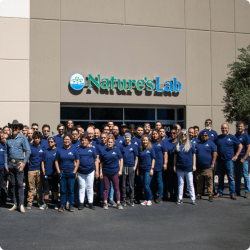

Our diet is the foundation for wellness. Eating healthy can be difficult when life gets busy. On top of hectic schedules there are many conflicting suggestions on what to eat and what not to eat. What foods should you be reaching for if you want to maintain better health? We have compiled some of the foods that have the most positive research behind their health benefits in this week’s blog.
Flavonoid-Rich Cherries and Berries

These small fruits can have a big impact on your health. The deep color of berries is a clue to their health-enhancing potential. Plant pigments are the source of flavonoids which act like antioxidants in the body, mopping up damaging free radical elements.* Some berries contain all six categories of flavonoids which are flavonols, flavone, flavan-3-ols, flavanones, anthocyanidins and isoflavones. Blueberries, raspberries, blackberries and cherries are some of the most potent antioxidant filled fruits since they contain all six flavonoid types. Berries are also a great source of vitamin C. Try boosting your antioxidant intake with Nature’s Lab Tart Cherry. This formula helps reduce inflammation, supporting better joint mobility and workout recovery.*
Fruits and Vegetables Boost Vitamin C

Fruits and vegetables high in vitamin C can support our natural defenses against harmful pathogens. Vitamin C supports immune function by protecting specific immune cells from oxidative stress. You can get vitamin C from oranges and other citrus fruits. Broccoli and spinach are excellent sources of vitamin C and the bioflavonoid quercetin. Surprisingly, a single bell pepper has more vitamin C than an orange, so be sure to add these colorful vegetables to your diet as well. The immune enhancing combination of quercetin and vitamin C is also available in capsule form in Nature’s Lab Super Vitamin C. Quercetin in this formula lessens the body’s response to histamine while vitamin C and citrus bioflavonoids fight inflammation.
Mushrooms for Gut and Immune Health

Mushrooms are low in calories and fat, yet high in vitamins, minerals and polysaccharides. Polysaccharides, specifically beta glucan, possess immune enhancing properties that have been well documented by numerous clinical studies.* Polysaccharides are a type of carbohydrate found within mushrooms. When these polysaccharides are broken down by gut bacteria they produce immune-stimulating metabolites.* Another great reason to increase mushrooms in your diet is that they are a significant source of vitamin D. Adding mushrooms to your plate makes sense for any healthy eating regimen. If you want to benefit from mushroom’s immune support benefits on the go, try Nature’s Lab’s Mushroom 7, a blend of seven different functional mushroom species.
Red Wine’s Diverse Antioxidants

Here’s a bit of good news for your next happy hour. If you enjoy a glass of red wine from time to time you can benefit from its resveratrol and other antioxidant compounds.* Resveratrol is a polyphenol found in grapes that supports healthy cholesterol, blood sugar metabolism and anti-inflammatory activity.* Because of red wine’s fermentation, the grapes become concentrated, increasing resveratrol levels in the beverage. Red wine contains not only resveratrol but other antioxidants such as anthocyanins, catechins, and tannins. Our Resveratrol Ultra supplement distills the benefits of a glass of red wine into capsule form without the added alcohol or calories. It contains not only resveratrol, grape seed extract and red wine extract, but also green tea extract to further up the ante in anti-inflammatory benefits.*
Omega 3 Fatty Acids from Fish

Want to contribute to better heart health, healthy blood pressure levels and even cognitive function? Omega-3 fatty acids are “good fats” that are indispensable for cardiovascular and brain health.* We can’t make omega-3 fatty acids in the body so we have to obtain them from the diet. Salmon, cod and tuna are fatty fish that contain generous amounts of omega-3 fatty acids. A 6-ounce serving of wild caught salmon has over 1,700 mg of omega-3 fatty acids per serving. Most dietary guidelines recommend a total of 8 ounces of fatty fish per week. Of course, for times that you can’t quite meet that quota you can get your omega-3’s in convenient capsule form with Nature's Lab Triple Strength Omega-3 Fish Oil with EPA & DHA.
Bone Broth’s Collagen Protein

Collagen makes up about one-third of total protein in our body. The bones have ample amounts of collagen, which is one reason why bone broth is one of the healthiest foods you can choose for your wellness. Bone broth is made by simmering bones on low heat for up to 48 hours. The heat breaks down the collagen, hyaluronic acid, chondroitin sulfate and other nutrients present in the bones and makes them consumable in liquid form. Bone broth is time consuming to make but well worth the effort. Collagen helps keep skin firm and elastic by supporting the structure of the dermis.* Collagen is also a component of hair, joints and connective tissue. After the age of thirty, collagen production sharply declines which is why getting additional collagen in the diet can provide significant health benefits. If you need a quick shot of collagen, try Nature’s Lab Gold Turmeric + Joint Complex. This formula combines hydrolyzed collagen peptides, hyaluronic acid and chondroitin sulfate with the antioxidant herb turmeric for joint and skin health.*
Organ Meats - “Nature’s Multivitamin”
In many cultures, organ meats like liver, heart and kidneys are considered a delicacy. Organ meat is sometimes referred to as “nature’s multivitamin” because they contain a variety of vitamins and minerals. Organ meats typically contain zinc, b vitamins and easily absorbed heme iron. If you are a vegetarian or simply don’t care for the taste of organ meat, you can bridge your nutritional gaps with a comprehensive multivitamin like One Daily or Six Daily.
Shop our Collection of Quality Supplements
References
Cerullo, G., Negro, M., Parimbelli, M., Pecoraro, M., Perna, S., Liguori, G., Rondanelli, M., Cena, H., D’Antona, G. (1AD, January 1). The long history of vitamin C: From prevention of the common cold to potential aid in the treatment of covid-19. Frontiers. Retrieved October 24, 2022, from https://www.frontiersin.org/articles/10.3389/fimmu.2020.574029/full
Omega-3 Fatty Acids: An Essential Contribution. Hsph.harvard.edu. (n.d.). Retrieved October 20, 2022, from https://www.hsph.harvard.edu/nutritionsource/what-should-you-eat/fats-and-cholesterol/types-of-fat/omega-3-fats/
Coyle, D. (2017, April 20). Organ meats are incredibly nutritious and healthy. Healthline. Retrieved October 20, 2022, from https://www.healthline.com/nutrition/organ-meats#TOC_TITLE_HDR_4
WebMD Editorial Contributors. (n.d.). Are there health benefits to eating organ meat? pros and cons, nutrition information, and more. WebMD. Retrieved October 20, 2022, from https://www.webmd.com/diet/health-benefits-organ-meat
Whyte, A. R., Cheng, N., Butler, L. T., Lamport, D. J., Williams, C. M. (2019, November 6). Flavonoid-rich mixed berries maintain and improve cognitive function over a 6 h period in Young healthy adults. Nutrients. Retrieved October 20, 2022, from https://www.ncbi.nlm.nih.gov/pmc/articles/PMC6893475/
Chai, S. C., Davis, K., Zhang, Z., Zha, L., Kirschner, K. F. (2019, January 22). Effects of tart cherry juice on biomarkers of inflammation and oxidative stress in older adults. Nutrients. Retrieved October 20, 2022, from https://www.ncbi.nlm.nih.gov/pmc/articles/PMC6413159/
Whitbread, D. (2022, September 27). Top 10 foods highest in Vitamin C. myfooddata. Retrieved October 20, 2022, from https://www.myfooddata.com/articles/vitamin-c-foods.php
Brennan, D. (2020, October 30). 10 foods high in flavonoids and why you need them. WebMD. Retrieved October 20, 2022, from https://www.webmd.com/diet/foods-high-in-flavonoids#1







